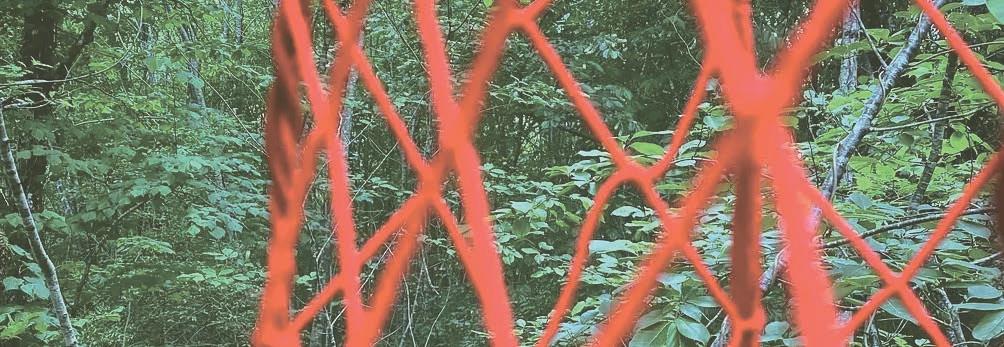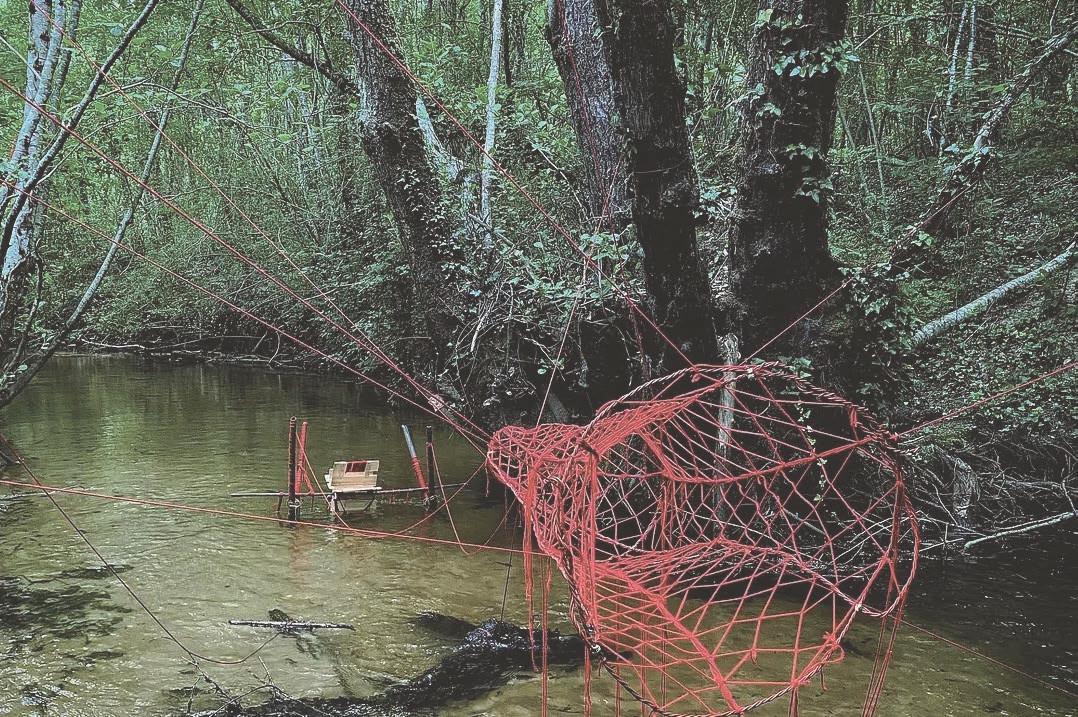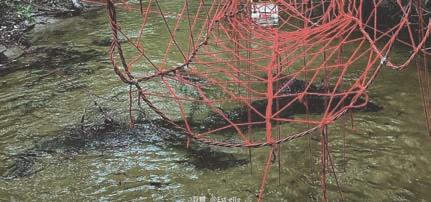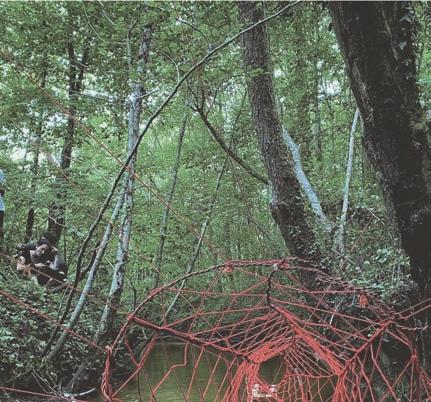
3 minute read
Dharavi: Water recycling
This project was designed for the 2022 UIA competition.
INSTRUCTOR: Prof.ZOU Tianjin University 2022.10-2022.11
Advertisement

1.Problems: inadequate supply of running water, poor bathing facilities, and inadequate nutrition of food. The main industry in Dharavi is garbage cleaning and recycling, but the working environment is not good.
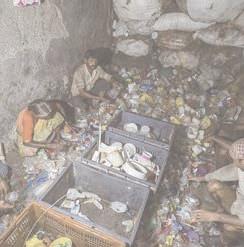
Thisproject is located in Dharavi, Mumbai, India, an area with extremely high population density and low income.For a long time, the residents have faced water supply problems. The development of real estate brokerage has caused farmers to lose their land and gather in slums. And the gap between the rich and the poor directly contributes to the disparity in food and water.In addition, the lack of infrastructure poses many sanitation problems. This project focuses on the industry of waste recycling in Dharavi, taking into account the recycling of water in daily life and garbage cleaning, and attempts to create a building that leads people to recycle water.
2.Location Analysis: Convenient access to the site provides easy transportation for waste recycling. However, the water supply stations are not evenly distributed.
3.Spatial syntax: I analyzed the accessibility and visibility of the site because of the high water activity and the need to take into account the safety of female children. To find the safest site for water activities, I overlaid multiple maps.
The cleanest water is used in shared kitchens and water stations.
Roof:The collection of rainwater.
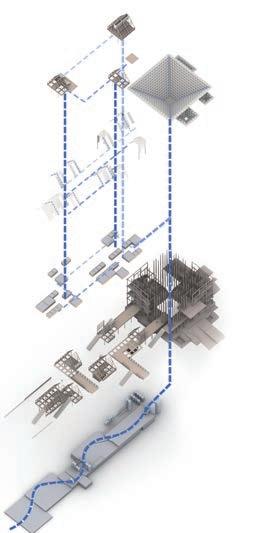
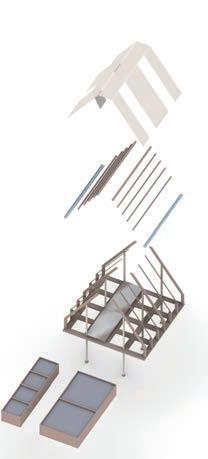
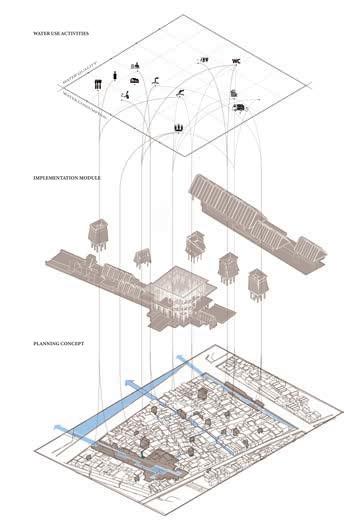
Main structure:wood from Mumbai.
Space for children to have fun and play.
Public canteen and necessary washing space (place for socializing)
Garbage Cleaning Planting box:Slum dwellers can farm their own fields
Xiangyu Park:Sense of belonging in public space
INSTRUCTOR: Prof.Lei ZHANG leizhang_01@tju.edu.cn 2020.9-2020.12
Site analysis

Thisproject is located in Tianjin, China. Xiangyu Park is located across from a school. Large numbers of students flock to the park every day after school, but they all just pass by. The commuter nature of the park affects people's willingness to stay. Interviews revealed that there is no sense of belonging to the park for all types of people, as the elderly, young students and office workers all pass through the site.
Therefore, I use the micro-terrain design to shield the surrounding noisy traffic and distinguish the space for passing and staying. I create small spaces for each type of people, and a large lawn as a space for shared communication. By doing so, I try to increase the sense of belonging in the park and make more people want to stay here.
The traffic around the site is noisy.
After school, a large number of students cross the site, making it unsuitable for staying
The living area around the site is fenced and relatively closed
There are some groupdeveloped activities in the community around the site. Why don't they go out in Xiangyu Park?
Functional zoning around the site
Green spaceAreas where resident activity has been observed
Form generation process:
First positioning of the "bubble", then adjusting the form, and finally the road network planning
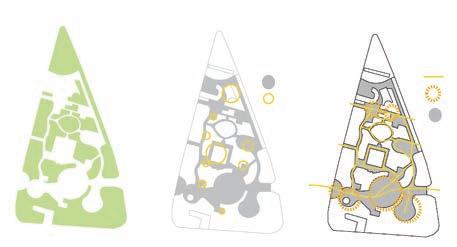
1.Starting from a complete green area, shape the terrain
2. Identify suitable spaces for activities : considering the terrain and the surrounding area
3.Place activities from the surrounding community and the school
4.Arrange the road network :considering the terrain and try to connect the “bubbles”
5.Planting some trees: to shield the park from the noisy traffic
Activity Zones:Define the activity attributes within the "bubble" in the context of the surrounding community
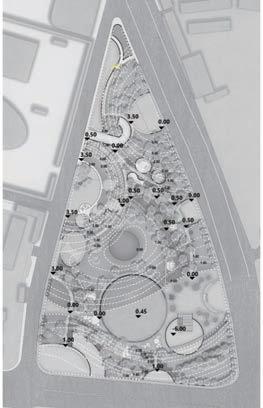
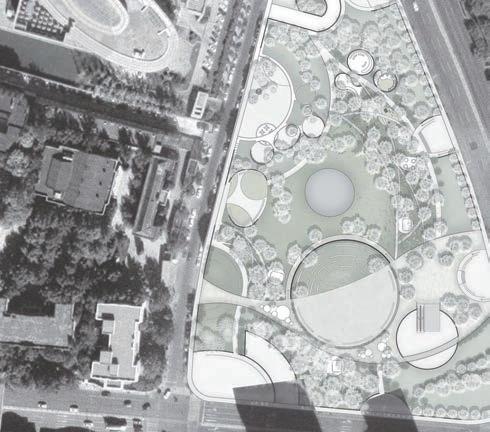
Vegetation zoning: considering the shielding function to the surrounding traffic enclosed spaces children's play facilities climbing paths resting spaces
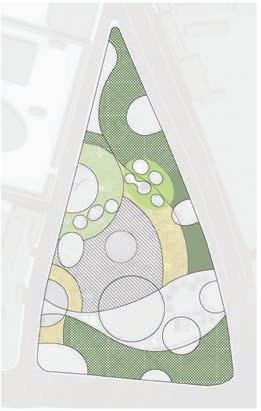
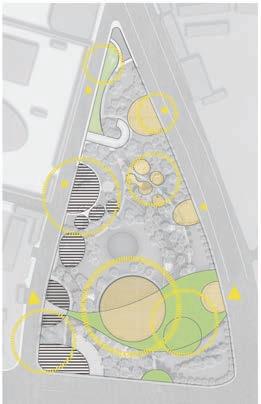
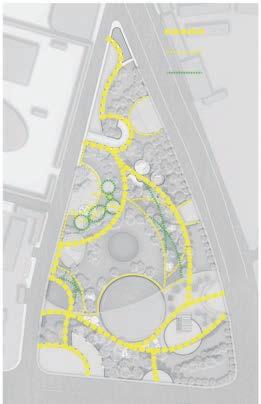

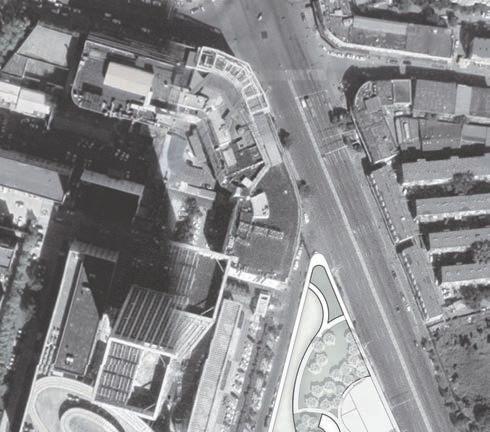
In the "bubble", people can only see their own neighborhoods, which gives them a sense of belonging. When one climbs onto the lawn, one can see the surrounding neighborhoods, which suggests "sharing".
Factors that can be shielded by the grass slope/terrain
Activities that can be created by the grass slope/terrain surrounding traffic noise north wind surrounding traffic quiet street in a friendly scale noisy and polluted should be shielded(using the terrain)
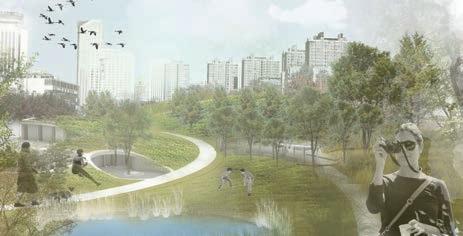
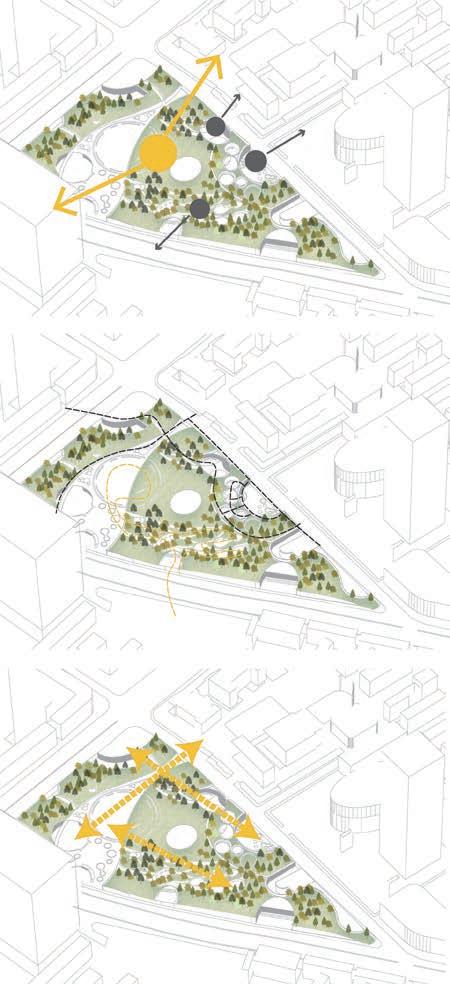
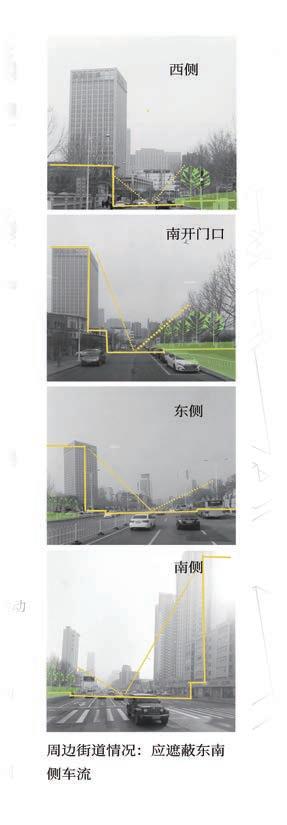



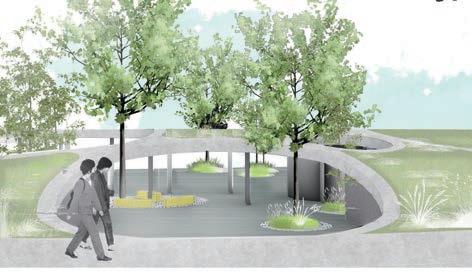
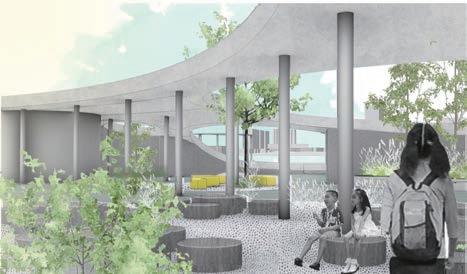
The circulation of the Campus Life Circle and the Resident Life Circle do not interfere with each other. But they are also interconnected.
Activities could happen along the street.
The organization of circulation has two vertical lines and one horizontal line.
This work is a group work with French students from ENSAP Bordeaux. We use organic and degradable materials to construct in the forest to express the growth of trees and the interlaced spatial relationship.
